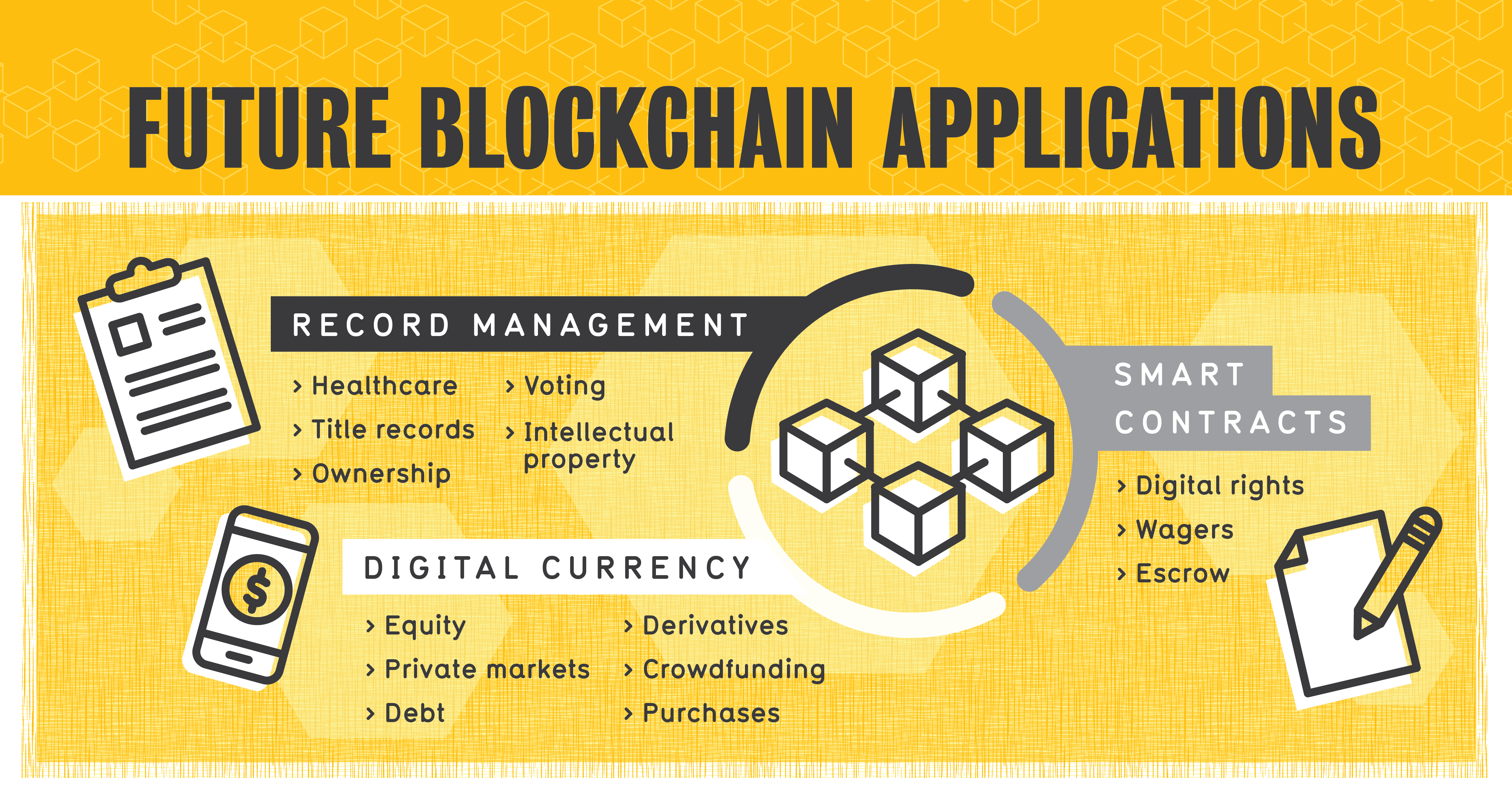
Beyond the hype: The future of blockchain
Waterloo researchers are looking beyond the hype to a promising future

Waterloo researchers are looking beyond the hype to a promising future
By University RelationsOriginally built as a way to secure cryptocurrency transactions, blockchain is a digital platform that verifies and records exchanges. Blockchains are global networks that can have millions of users, each adding information/data which is secured through cryptography. This creates an indisputable history of these transactions that cannot be modified by a single user, eliminating opportunities for fraud, and it is this feature that has some heralding blockchain as a way of increasing cybersecurity.
University of Waterloo researchers are looking to understand the full potential of this emerging technology and determine if blockchain can live up to the hype and reduce its intrinsic connection to cryptocurrencies like Bitcoin. Is it a safe bet for data transfer applications in government, business, health and finance?

Theo Stratopoulos
Professor,
Faculty of Arts School of Accounting and Finance
One prediction for blockchain is that it and other technologies will make accounting professionals obsolete. Theo Stratopoulos from Waterloo’s School of Accounting and Finance, is teaching the next generation of accounting professionals and, rather than presenting students with dire predictions, Stratopoulos focuses on teaching how the complex new technology works and encourages students to decide for themselves how it will impact the profession. His goal is to help them look at technologies like blockchain with a critical eye.
In his research, Stratopoulos is seeking to understand real-world adoption rates. While innovators and early adopters are driving the excitement around blockchain, Stratopoulos is researching how deeply the technology has penetrated the business world.
Stratopoulos is looking to uncover the specific adoption point when investing in blockchain technology goes from being a competitive advantage to a business requirement. His framework can also be applied to understanding the adoption rates of other technologies, such as IoT, big data, artificial intelligence and cloud computing.

Srinivasan Keshav
Professor,
Faculty of Mathematics
Cheriton School of Computer Science
In the early 1990s, the Internet was emerging as a new and exciting technology. Visionaries were declaring it would revolutionize the world. During a period known as the dot-com bubble, new companies exploded on the scene, raising millions in speculative capital on nothing more than a promise. It all came crashing down in 2000 when the bubble burst.
While many internet predictions eventually came true, it took several decades to reach the potential promised in those early days. Professor Srinivasan Keshav from Waterloo’s Cheriton School of Computer Science predicts that blockchain will experience a similar trajectory.
Although it may lose some of its lustre because of its close ties to controversial Bitcoin, Keshav believes that like the internet, research will continue even after the media hype quiets down. He has brought together 17 faculty members from departments across campus, including from Electrical and Computer Engineering, Management Science, Accounting and Finance, Public Health, Computer Science and Combinatorics and Optimization, into the Sirius research group. The group studies the foundations and applications of blockchain technology and explores its application to areas such as energy, finance, accounting and health.
In his own research, Keshav and his collaborators have been working with the open source code for IBM’s Hyperledger Fabric to find new ways to speed up this permissioned blockchain. His work so far has led to increasing transactional speed by a factor of six. While Hyperledger can currently perform 3,200 transactions per second, the research team is able to increase it to 20,000 transactions per second, with plans to take it to hundreds of thousands per second in the coming year.

Anwar Hasan
Professor and Ripple Chair,
Faculty of Engineering
Department of Electrical and Computer Engineering
While it may take years for blockchain to reach its full potential, the technology is already being used for applications outside of cryptocurrency. For example, Ripple is a payment protocol that uses blockchain to improve the speed and reduce the costs for international financial transactions.
The University of Waterloo is the only Canadian institution selected to participate in Ripple’s $50 million University Blockchain Research Initiative. Professor Anwar Hasan from the department of Electrical and Computer Engineering is leading Waterloo’s research group.
The group is exploring how to improve blockchain’s scalability by looking for ways to reduce traffic on the network. As well, because it stores significant amounts of encrypted information, researchers are also looking at how the technology can allow for encrypted searches while preserving confidentiality.
Hasan’s research is investigating ways to reduce blockchain’s energy consumption and underlying computation. By going deep into the blockchain technology, Hasan hopes they can understand which specific elements are consuming more power and developing new algorithms that increase efficiency by requiring fewer computation resources.
While blockchain may not be the answer to all security issues, this complex technology has a future beyond the volatile world of cryptocurrencies.
Blockchain is already proving to be a valuable asset for administering smart contracts. With its immutable transactional history, it offers a unique potential to reduce fraud, which could offer a solution for global challenges across a variety of applications and sectors. Waterloo researchers are working towards solutions for blockchain’s major challenges, which will open the door for broader applications that may well be a game-changer in how we share and transfer information.


Read more
Everything from pacemakers to insulin pumps and digital toys can be hacked in our Internet-of-Things world

Read more
Governments and corporations need to start thinking about quantum era security right now, says Waterloo researcher

Read more
The Waterloo Cybersecurity and Privacy Institute is tackling security challenges before they arise
The University of Waterloo acknowledges that much of our work takes place on the traditional territory of the Neutral, Anishinaabeg, and Haudenosaunee peoples. Our main campus is situated on the Haldimand Tract, the land granted to the Six Nations that includes six miles on each side of the Grand River. Our active work toward reconciliation takes place across our campuses through research, learning, teaching, and community building, and is co-ordinated within the Office of Indigenous Relations.